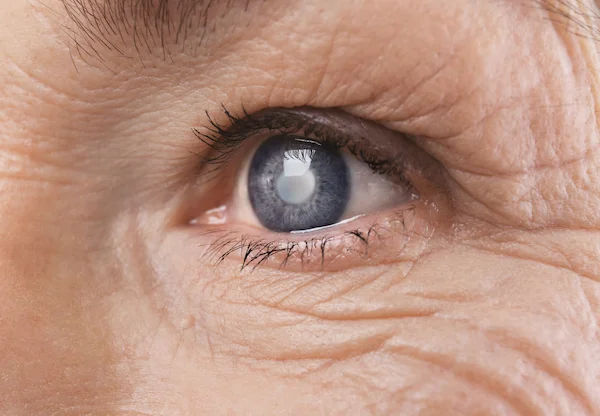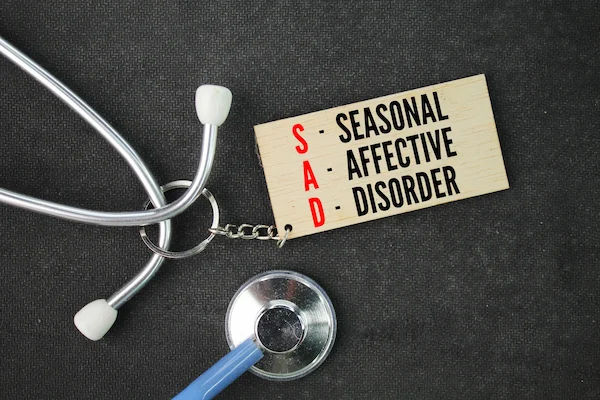Anxiety Symptoms, Causes, Types, and Treatments
Understand anxiety, including its symptoms, causes, and different types such as generalized anxiety disorder and panic disorder. Explore effective treatment options to manage anxiety and improve mental well-being.

Written by Dr. J T Hema Pratima
Reviewed by Dr. Rohinipriyanka Pondugula MBBS
Last updated on 26th Aug, 2025

Introduction
Anxiety is a common emotion that everyone experiences at some point in life. However, when it becomes excessive, persistent, and interferes with daily activities, it may be a sign of an anxiety disorder. If you or a loved one is struggling with anxiety, know that you are not alone; help is available. This article will guide you through the symptoms, causes, types, and treatments for anxiety in simple, easy-to-understand terms.
What is Anxiety?
Anxiety is a natural response to stress, danger, or uncertainty. It’s your body’s way of preparing you to face a challenge. However, when anxiety becomes overwhelming and lasts for long periods, it can affect your mental and physical health.
Consult a Psychiatrist for the best advice
Common Symptoms of Anxiety
Anxiety can show up in different ways, including:
Physical Symptoms:
Rapid heartbeat or palpitations
Sweating or trembling
Shortness of breath
Dizziness or lightheadedness
Stomachaches or nausea
Muscle tension or headaches
Fatigue or trouble sleeping
Emotional & Mental Symptoms:
Excessive worry or fear
Restlessness or irritability
Difficulty concentrating
Feeling "on edge"
Fear of losing control
Avoidance of situations that trigger anxiety
If these symptoms persist for weeks or months and disrupt your daily life, it may be time to seek professional help.
What Causes Anxiety?
Anxiety disorders can arise from a mix of factors, including:
1. Genetics: If anxiety runs in your family, you may be more likely to experience it.
2. Brain Chemistry: Imbalances in brain chemicals (like serotonin and dopamine) can contribute to anxiety.
3. Stressful Life Events: Trauma, financial problems, work pressure, or relationship issues can trigger anxiety.
4. Medical Conditions: Thyroid disorders, heart disease, or chronic illnesses can sometimes cause anxiety symptoms.
5. Substance Use: Alcohol, caffeine, or certain medications can worsen anxiety.
Types of Anxiety Disorders
Anxiety isn’t just one condition; it comes in different forms:
1. Generalized Anxiety Disorder (GAD): Excessive worry about everyday things, even when there’s no real reason.
2. Panic Disorder: Sudden, intense fear leading to panic attacks with physical symptoms like chest pain or dizziness.
3. Social Anxiety Disorder: Extreme fear of social situations, leading to avoidance of interactions.
4. Phobias: Intense fear of specific things (e.g., heights, spiders, flying).
5. Obsessive-Compulsive Disorder (OCD): Unwanted thoughts (obsessions) leading to repetitive behaviors (compulsions).
6. Post-Traumatic Stress Disorder (PTSD): Anxiety triggered by past traumatic events.
How to Manage and Treat Anxiety
The good news is that anxiety is treatable. Here are some ways to manage it:
Lifestyle Changes
Exercise Regularly: Physical activity releases endorphins, which help reduce stress.
Eat a Balanced Diet: Avoid excessive caffeine, sugar, and processed foods.
Get Enough Sleep: Poor sleep can worsen anxiety, so aim for 7-9 hours nightly.
Practice Relaxation Techniques: Deep breathing, meditation, and yoga can calm your mind.
Limit Alcohol & Smoking: These can increase anxiety symptoms.
Therapy & Counselling
Cognitive Behavioral Therapy (CBT): Helps change negative thought patterns.
Exposure Therapy: Gradually facing fears in a controlled way.
Mindfulness & Stress Management: Techniques to stay present and reduce worry.
Medications (if needed)
Antidepressants (SSRIs/SNRIs): Help balance brain chemicals.
Anti-Anxiety Medications: Short-term relief for severe symptoms.
Beta-Blockers: Reduce physical symptoms like rapid heartbeat.
Always consult a doctor before starting any medication.
When to Seek Professional Help?
If anxiety is affecting your work, relationships, or overall well-being, don’t hesitate to reach out for support. A mental health professional can help you find the right treatment plan.
Final Thoughts
Anxiety is a challenging but manageable condition. With the right support, lifestyle changes, and treatment, you can regain control and live a happier, healthier life. Remember, seeking help is a sign of strength, not weakness. You deserve peace of mind; take the first step today.
Consult a Psychiatrist for the best advice
Consult a Psychiatrist for the best advice

Dr. Ankit Halder
Psychiatrist
7 Years • MBBS,MD(PSYCHIATRY)
Kolkata
Serenity Mindcare (A Neuropsychiatry Clinic), Kolkata

Dr. Deborshi Das
Psychiatrist
7 Years • MBBS, MD Psychiatry
Barasat
Diab-Eat-Ease, Barasat

Dr. Aditya Nair
Psychiatrist
4 Years • MBBS,MD-PSYCHIATRY
Bansdroni
Siddhita Healthcare., Bansdroni

Dr. Anweshan Ghosh
Psychiatrist
10 Years • MBBS MD Psychiatry
Barasat
Diab-Eat-Ease, Barasat

Dr Rohit Ranjan
Psychiatrist
10 Years • MBBS, MD (Psychiatry)
Bengaluru
Apollo Medical Center, Marathahalli, Bengaluru




